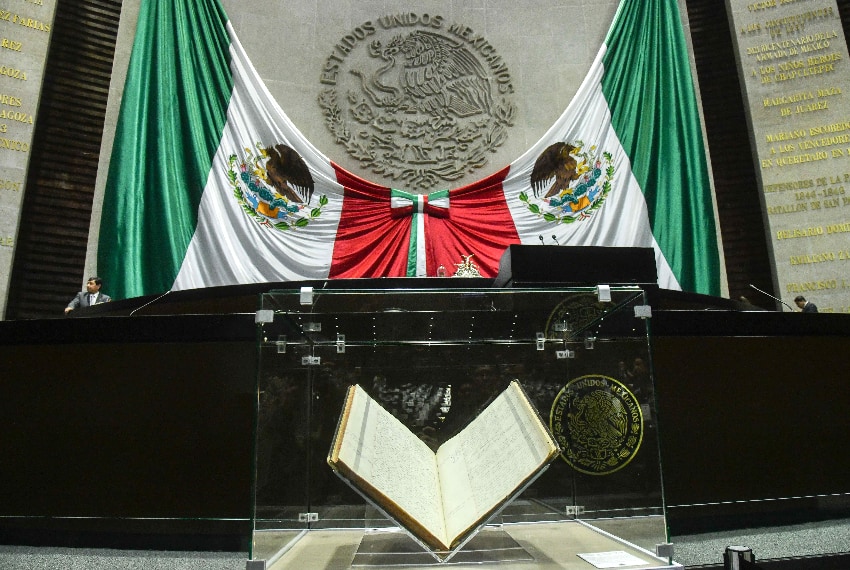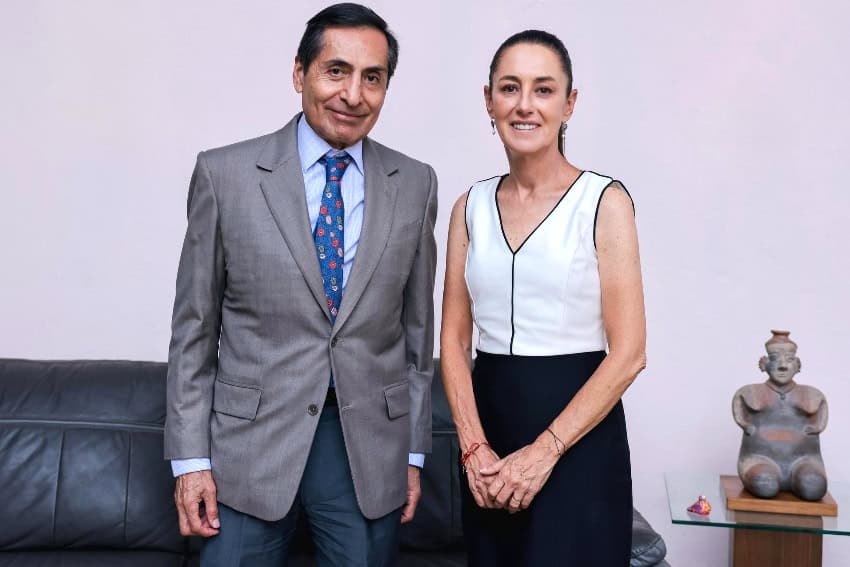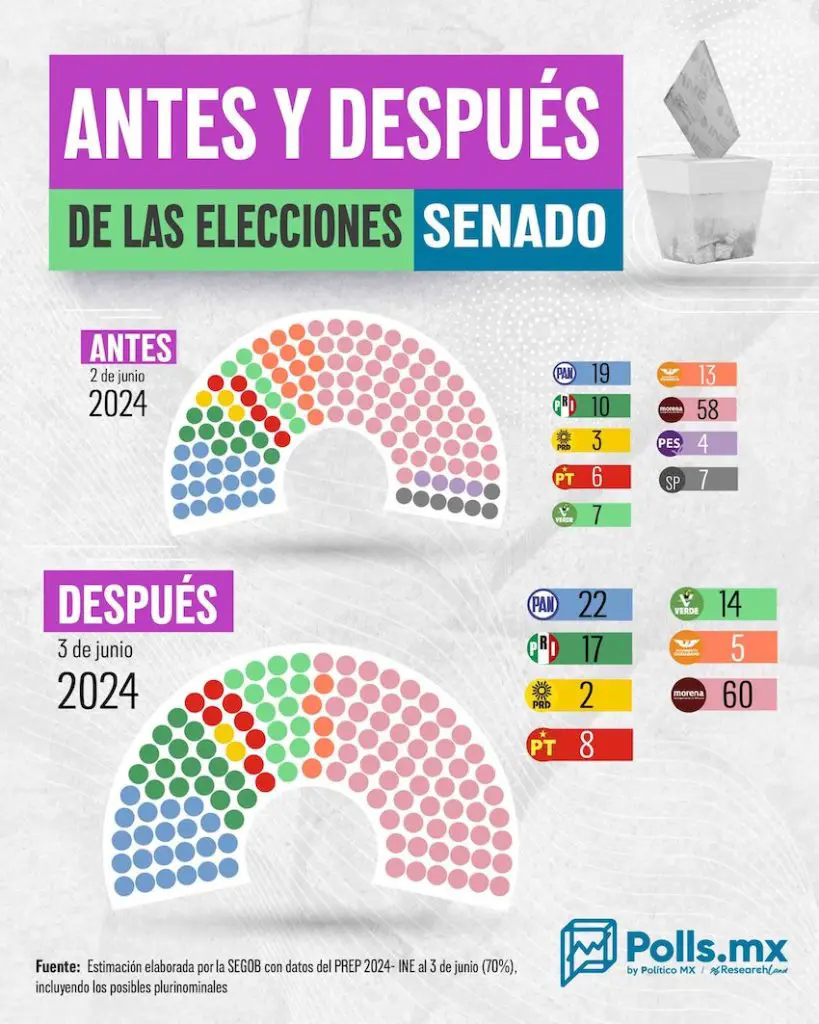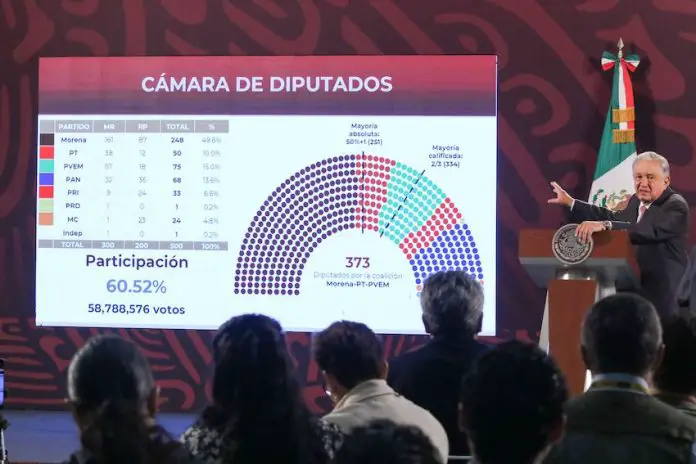Final election results indicate that Mexico’s ruling Morena party and its allies easily won a two-thirds majority in the lower house of Congress, but fell just short of a supermajority in the Senate.
Morena will thus have to seek support from a few opposition senators in order to approve the constitutional reform proposals submitted to Congress by President Andrés Manuel López Obrador in February.

López Obrador, Morena’s founder, will hand over the presidential sash to Claudia Sheinbaum on Oct. 1, exactly one month after the new Congress is sworn in.
Proportional representation seats won’t be officially allocated until August, but June 2 results announced by the National Electoral Institute (INE) on Sunday indicate that Morena and its allies, the Labor Party (PT) and the Green Party (PVEM), won 370 of 500 seats in the Chamber of Deputies and 82 of 128 seats in the Senate, according to the newspaper El Economista.
A two-thirds majority is 334 seats in the Chamber of Deputies and 86 seats in the Senate.
Morena’s national president, Mario Delgado, was slightly more optimistic about the rewards the Morena-PT-PVEM coalition will reap from its strong showing in the elections on the first Sunday in June.
He posted an infographic to social media that showed that the three allied parties will have 372 seats in the Chamber of Deputies and 83 in the Senate.
“Thanks to all of you Plan C is a reality!” Delgado wrote above the image, referencing López Obrador’s much-touted plan to gain sufficient support for his reform proposals by winning supermajorities in Congress.

“With a qualified majority in the Chamber of Deputies and a majority in the Senate, we will deepen the transformation in order to continue building a country with wellbeing and shared prosperity,” the Morena national president added.
Delgado has expressed confidence that gaining the support of a few opposition lawmakers to approve constitutional reforms will not be an overly difficult task.
Among López Obrador’s planned reforms are ones to disband several autonomous government agencies, change Mexico’s electoral system, overhaul the pension system, incorporate the National Guard into the military and allow citizens to directly elect Supreme Court justices and other judges.
Critics say that some of the proposals will reduce checks and balances on executive power in Mexico.
Preliminary results indicating that Morena and its allies would have the numbers in Congress to approve the proposals with little or no negotiation with opposition parties caused the Mexican peso and the Mexican Stock Exchange (BMV) to lose significant ground last week.
The BMV has recovered some of its losses, but the peso remains well below its pre-election level. It was trading at just above 18.30 to the US dollar at midday Mexico City time on Monday.

President-elect Sheinbaum last week sought to calm markets by announcing that Finance Minister Rogelio Ramírez de la O would remain in his position when she takes office and endorsing a set of economic commitments outlined by Ramírez de la O.
She also said there would be broad dialogue about the reform proposals, but López Obrador appears determined to get at least some of them — especially his proposed judicial reform — approved before his term as president ends.
Political makeup of Mexico’s Chamber of Deputies
As mentioned earlier, proportional representation seats — 200 in the Chamber of Deputies and 32 in the Senate — will not be officially allocated until August. Legal challenges could affect the final allocation of seats in both houses of Congress.
The governing alliance
According to the newspaper El Economista, Morena won 245 seats in the lower house of Congress, the PVEM won 77 and PT won 48. The three parties together would thus have 270 seats.
INE results show that Morena won 40.8% of the vote in the Chamber of Deputies election, the PVEM attracted 8.4% support and the PT received 5.5% of all ballots cast.
The three-party coalition known as Let’s Keep Making History thus won 54.7% of the vote. It will have more than triple the number of seats of the three-party opposition bloc.
The PVEM, which was previously an ally of the Institutional Revolutionary Party (PRI), will be the second biggest party in the Chamber of Deputies after Morena.
The opposition
Once the recently-elected lawmakers assume their positions on Sept. 1, the National Action Party (PAN) will have 68 seats in the lower house of Congress, the PRI will have 33 and the PRD will have three, according to El Economista.
Thus, the three-party alliance made up of the PAN, the PRI and the PRD will have 104 seats.
Strength and Heart for Mexico, as the coalition is called, supported Xóchitl Gálvez in the presidential election. She attracted 27.45% of the vote, well behind Sheinbaum with 59.75%.
INE results show that the PAN won 16.9% of the vote in the Chamber of Deputies election, the PRI attracted 11.1% support and the PRD received 2.4% of all ballots cast.
Thus, Strength and Heart for Mexico won 30.4% of the vote.
The Citizens Movement (MC) party won 10.9% of the vote and will have 25 seats in the lower house, according to El Economista. Its presidential election candidate, Jorge Álvarez Máynez, attracted 10.3% support on June 2.
One of the 500 members of the lower house of Congress is set to be an independent.
Deputies serve three-year terms.

Breakdown of Mexico’s Senate
The governing alliance
According to El Economista, Morena won 60 seats in the Senate, the PVEM won 14 and the PT won eight. The Morena-led coalition will thus have 82 seats in the upper house.
INE results show that Morena attracted 40.8% of the vote, the PVEM had 8.9% support and the PT received 5.5% of all ballots cast.
Thus, the Morena-led coalition won 55.2% of the vote in the Senate election, narrowly beating its result in the Chamber of Deputies election. Despite that, its percentage of seats in the Senate will be lower than in the Chamber of Deputies.
The opposition
According to El Economista, the PAN won 22 seats in the Senate, the PRI won 16 and the PRD won two. That gives the three-party opposition bloc a total of 40 seats in the upper house.
INE results show that the PAN received 16.8% of the vote, the PRI got 10.9% and the PRD attracted 2.3% support. Combined support for the three-party alliance in the Senate election was 30%.
MC attracted 10.9% support in the Senate election and will have six senators as of Sept. 1, according to El Economista.
Senators serve six-year terms.
Mexico News Daily
